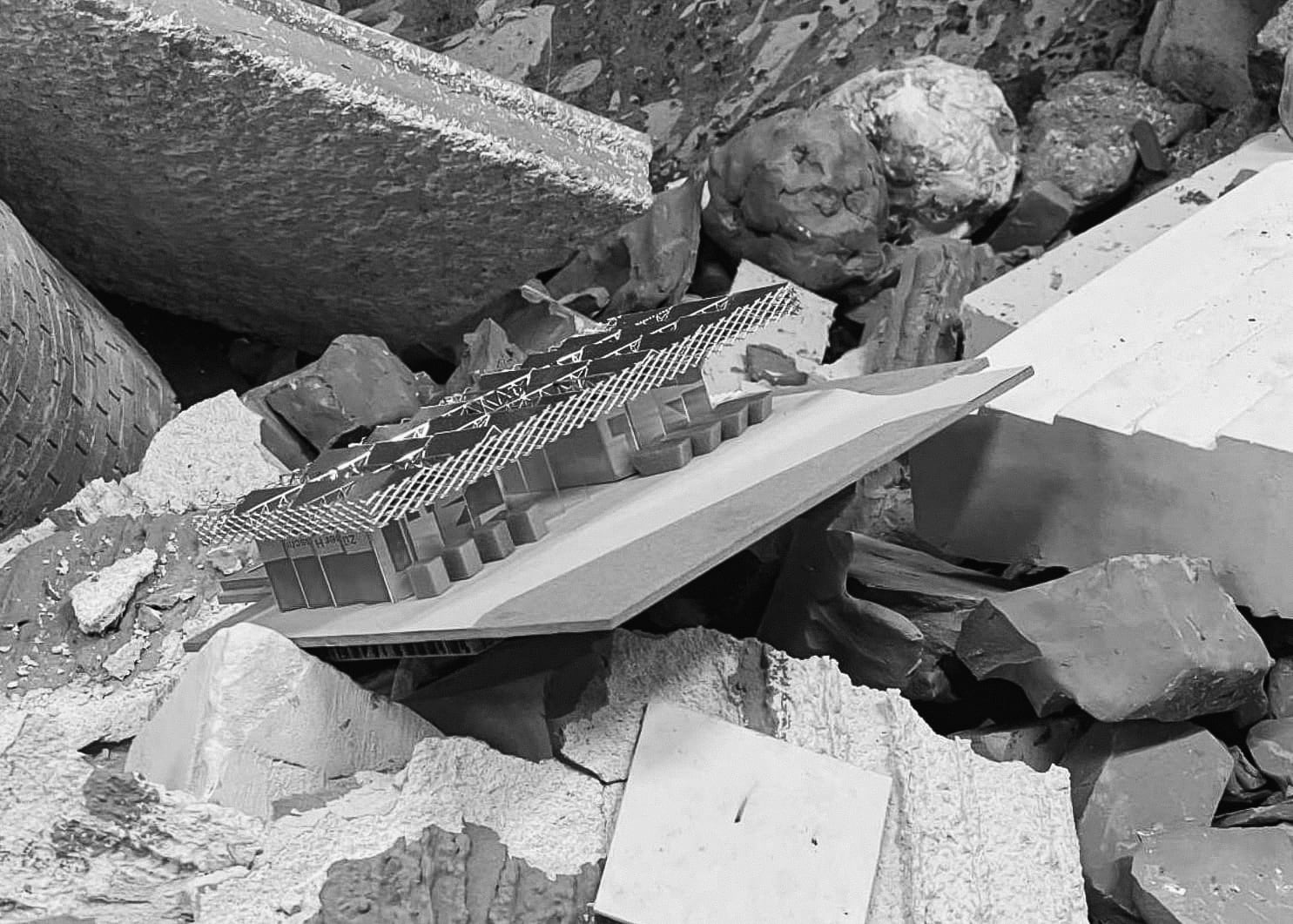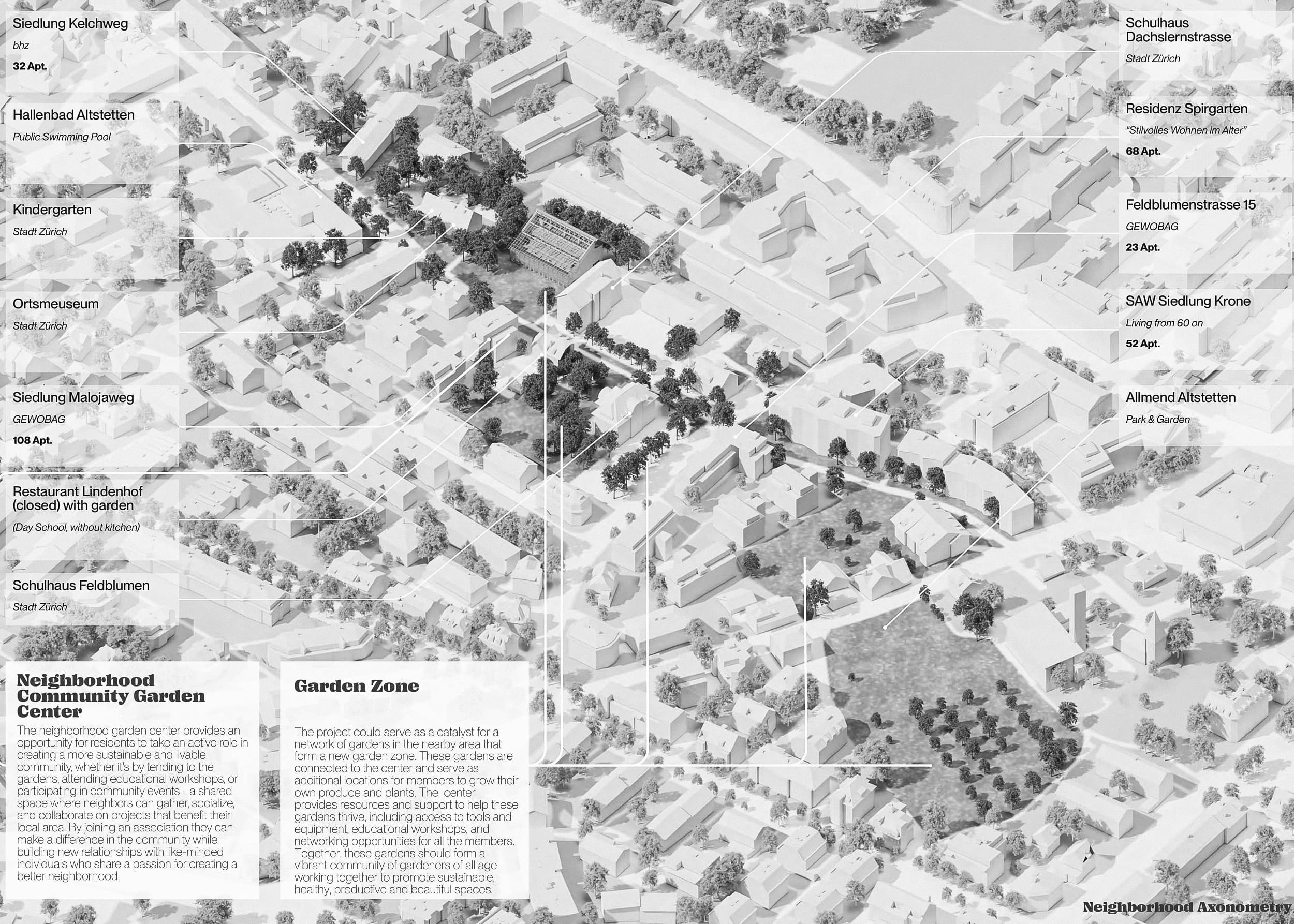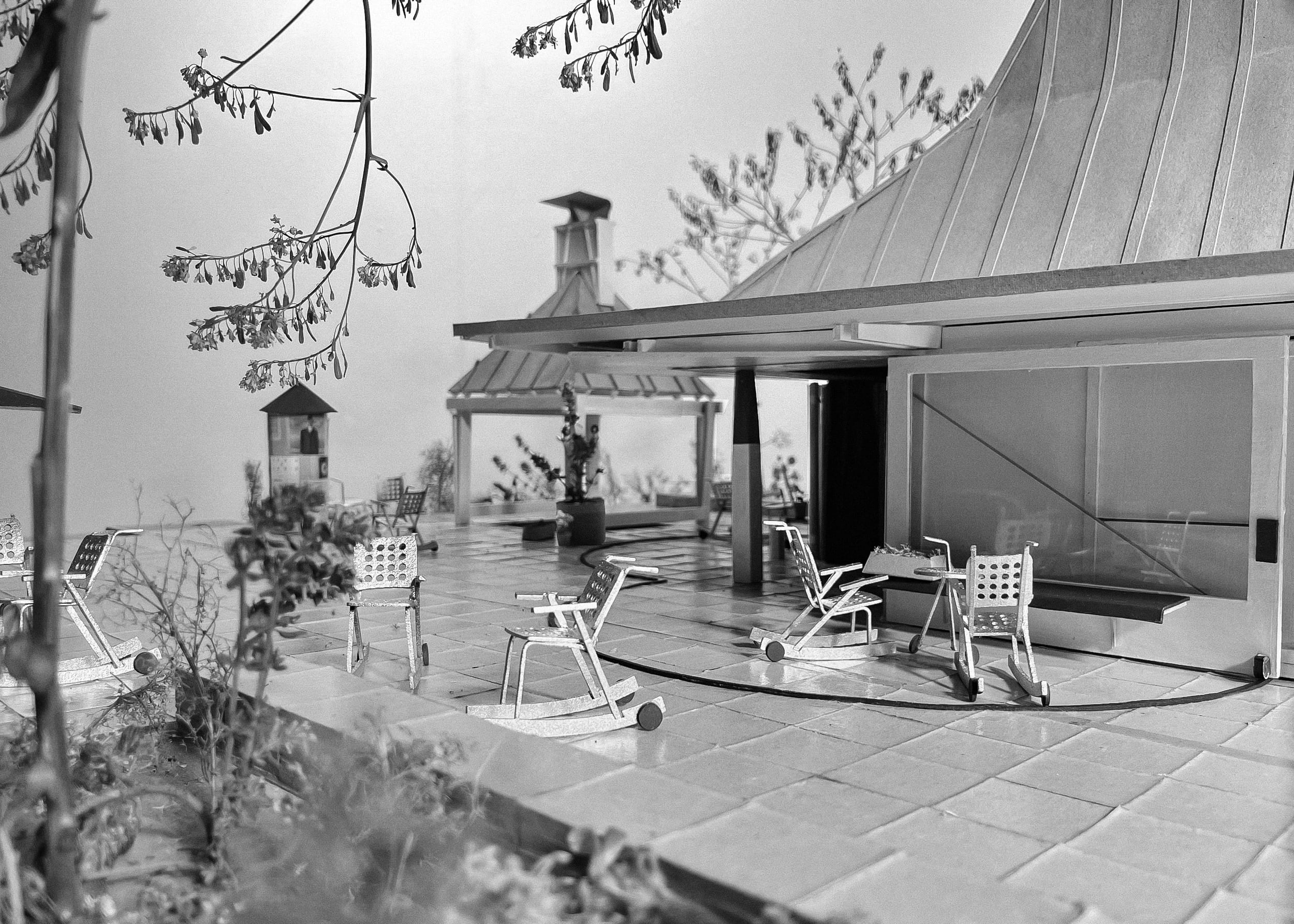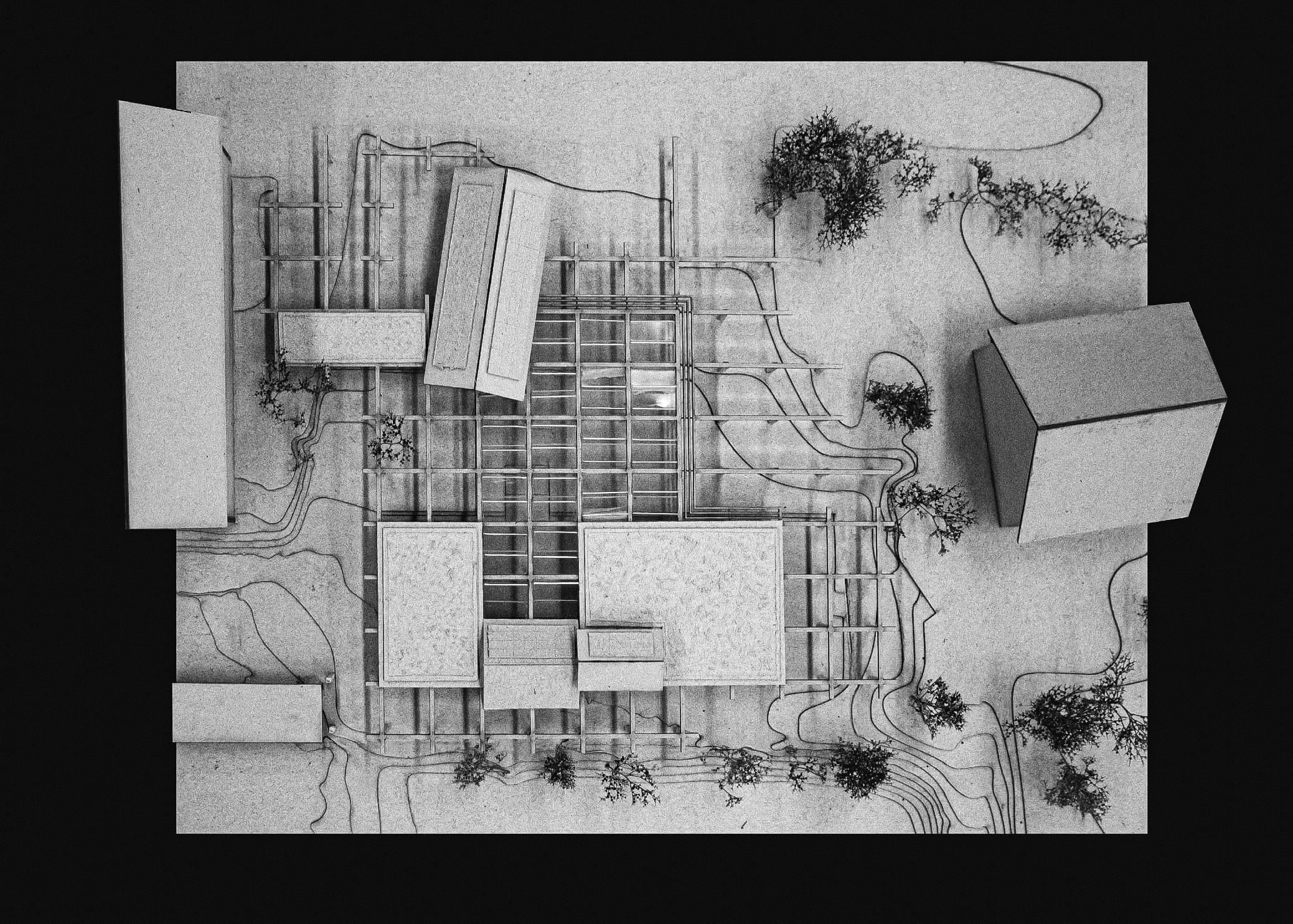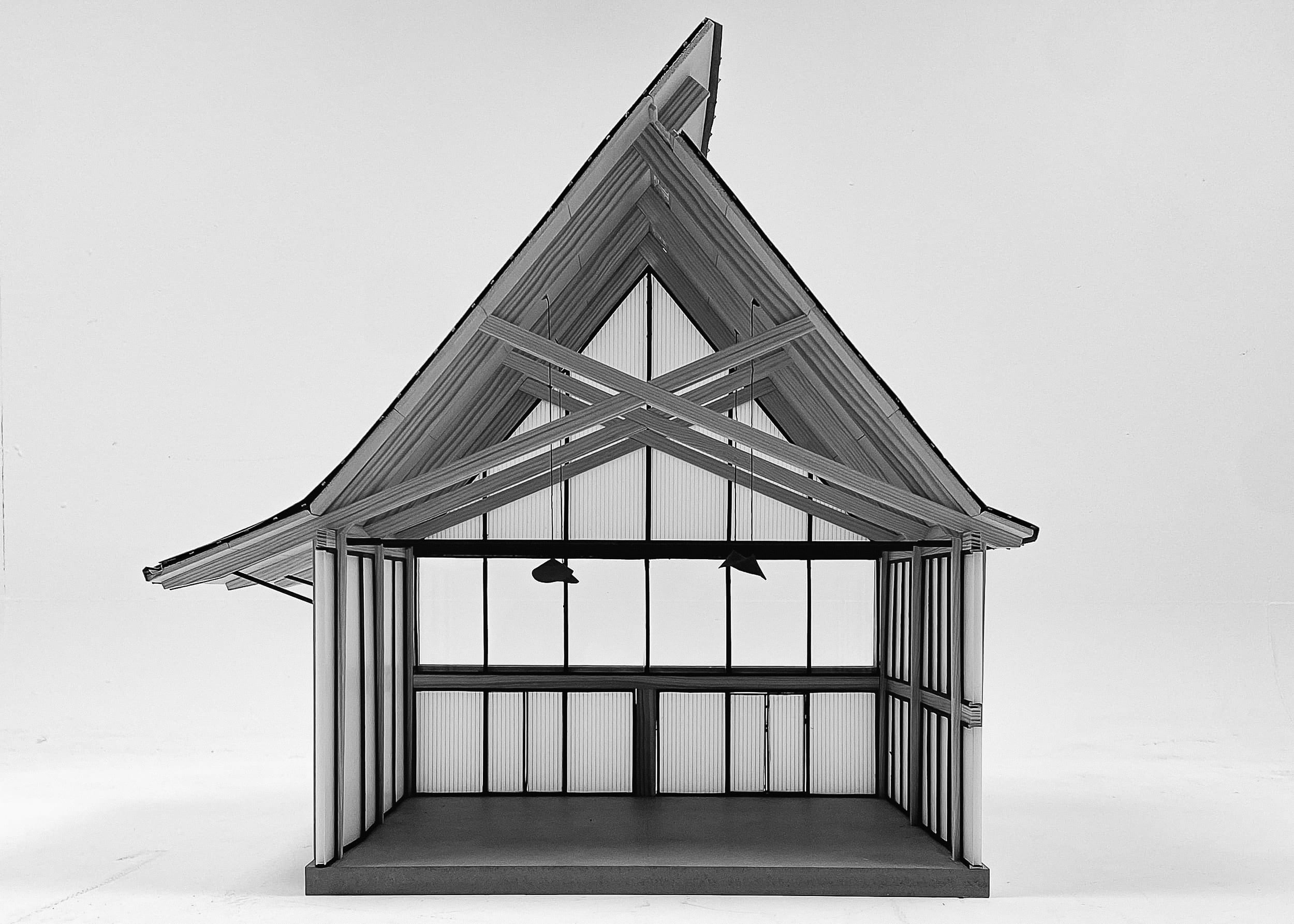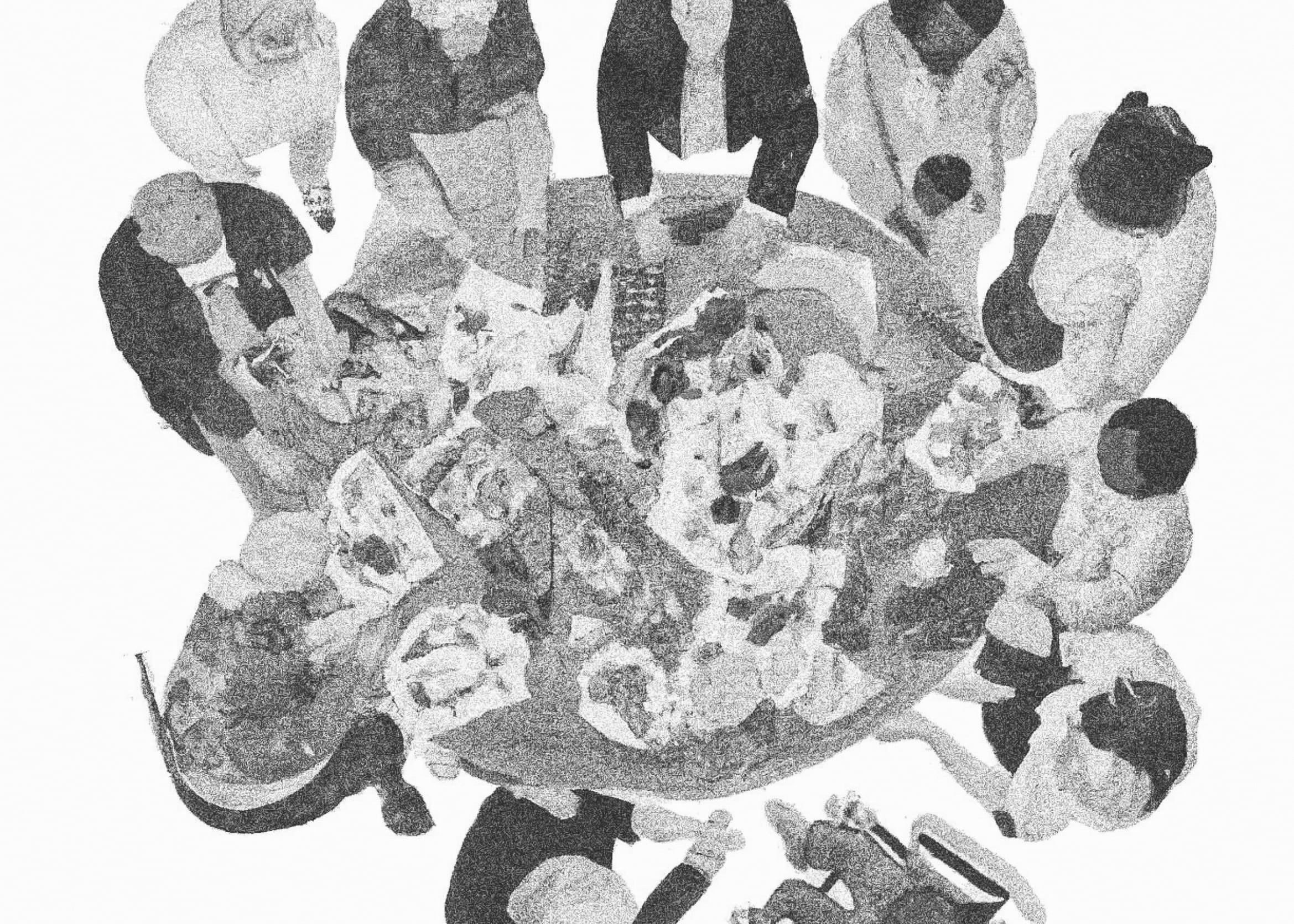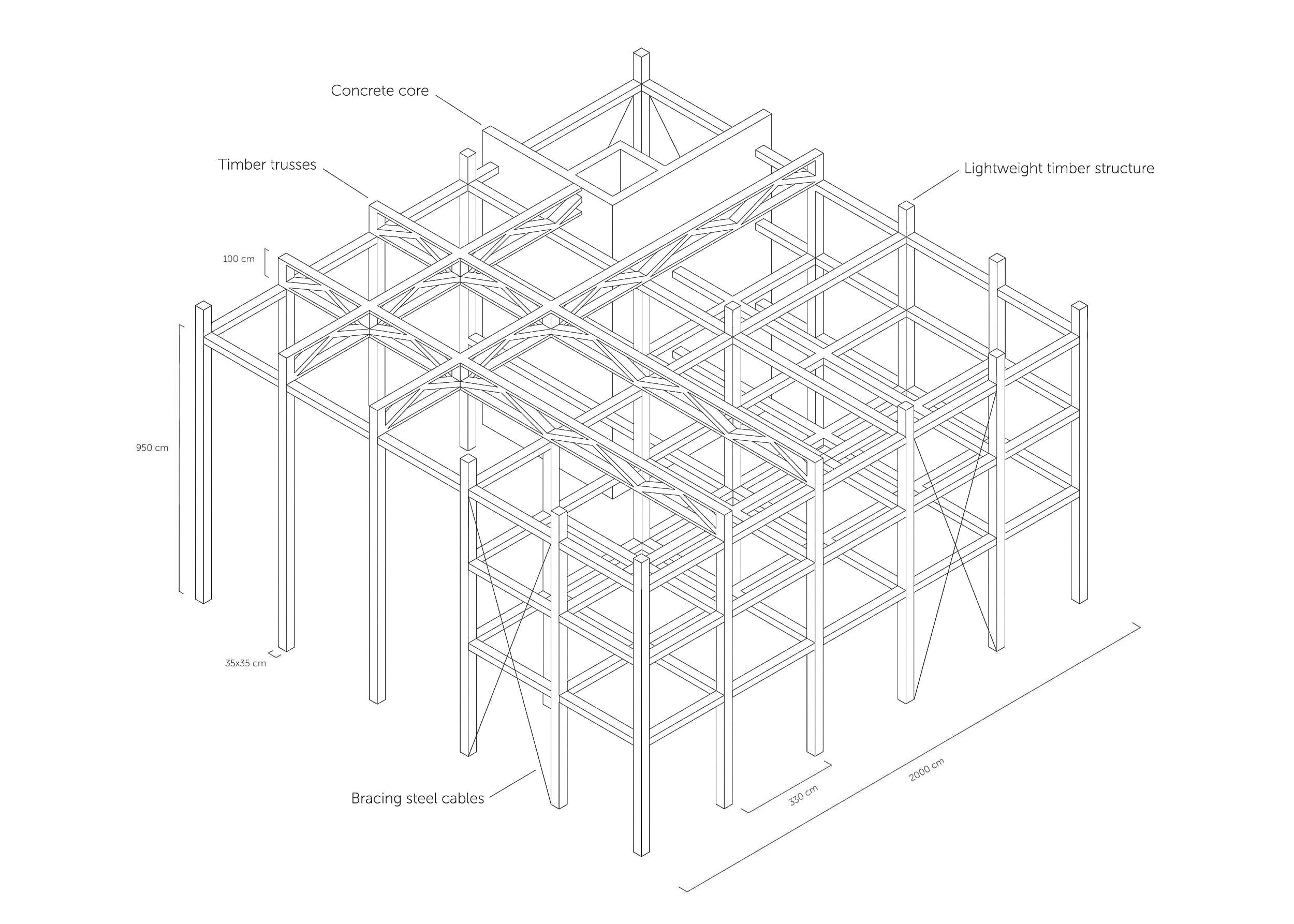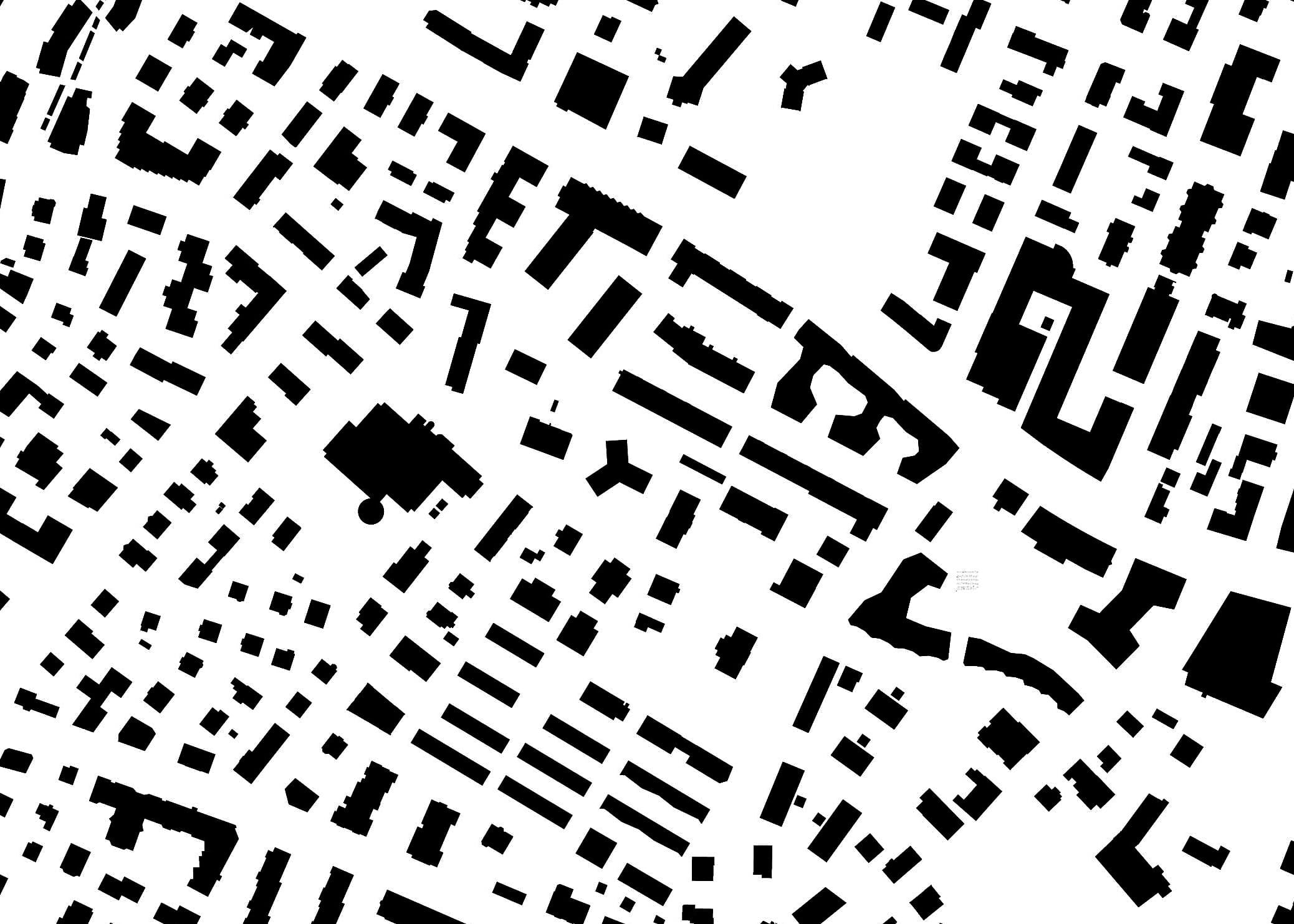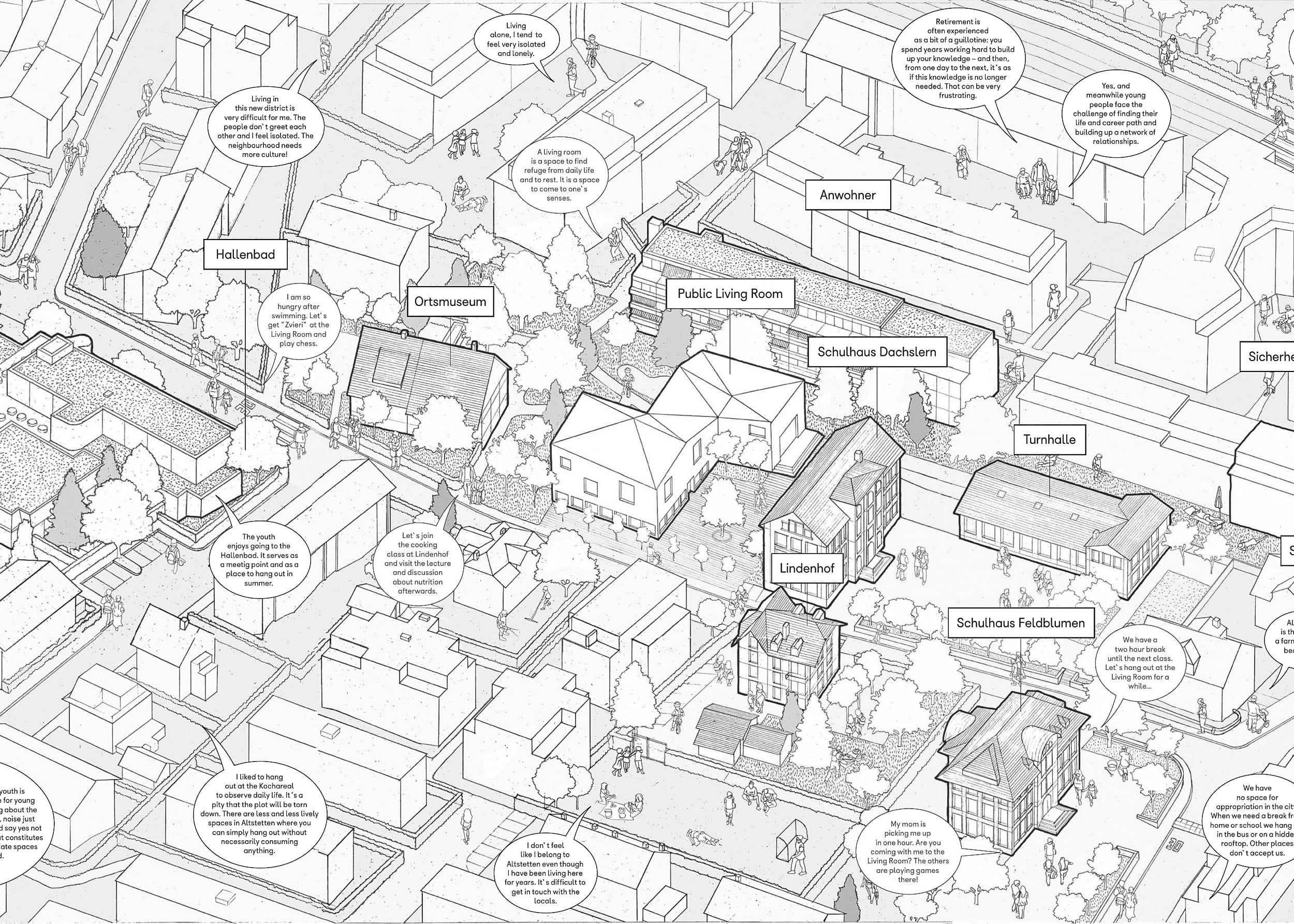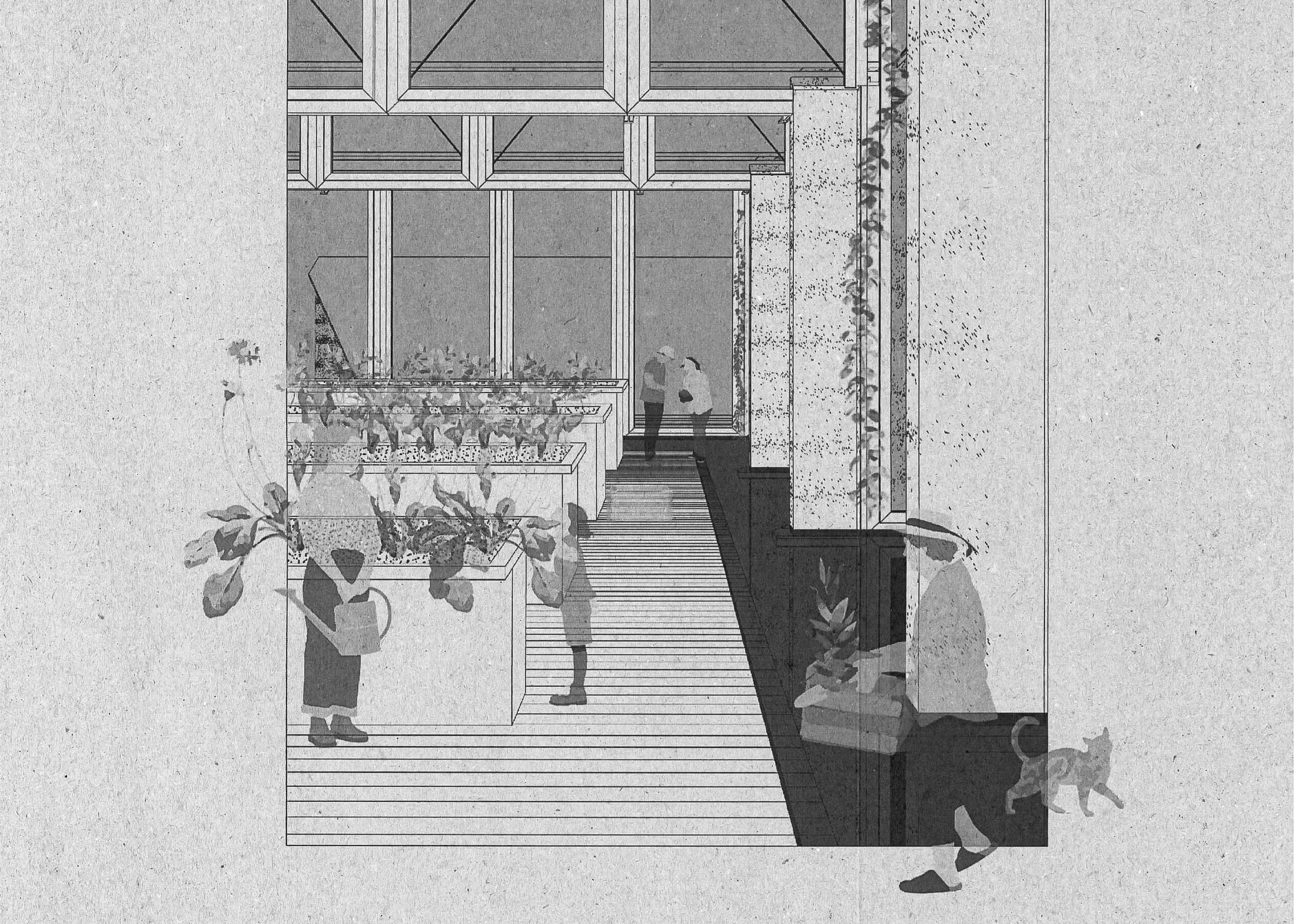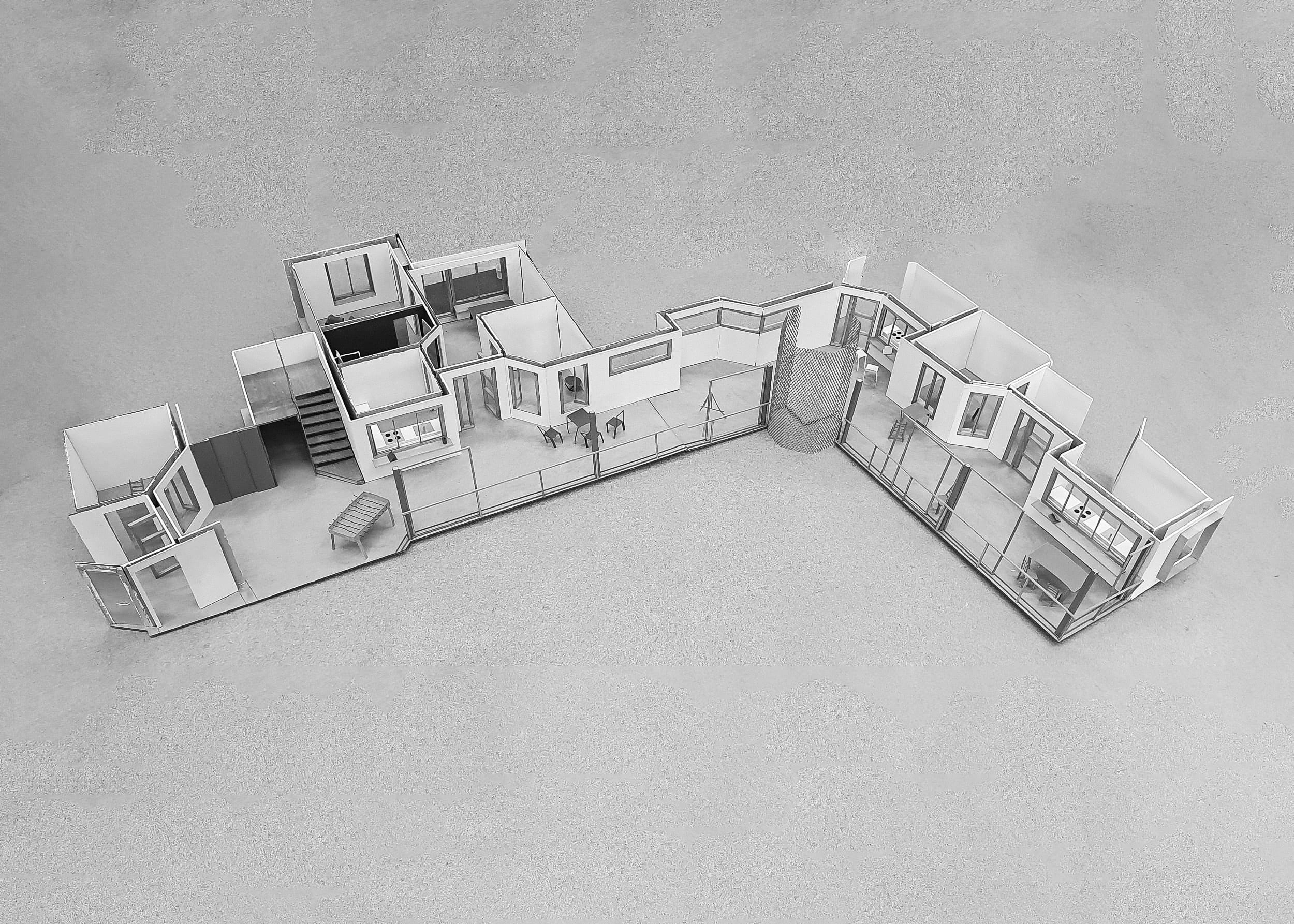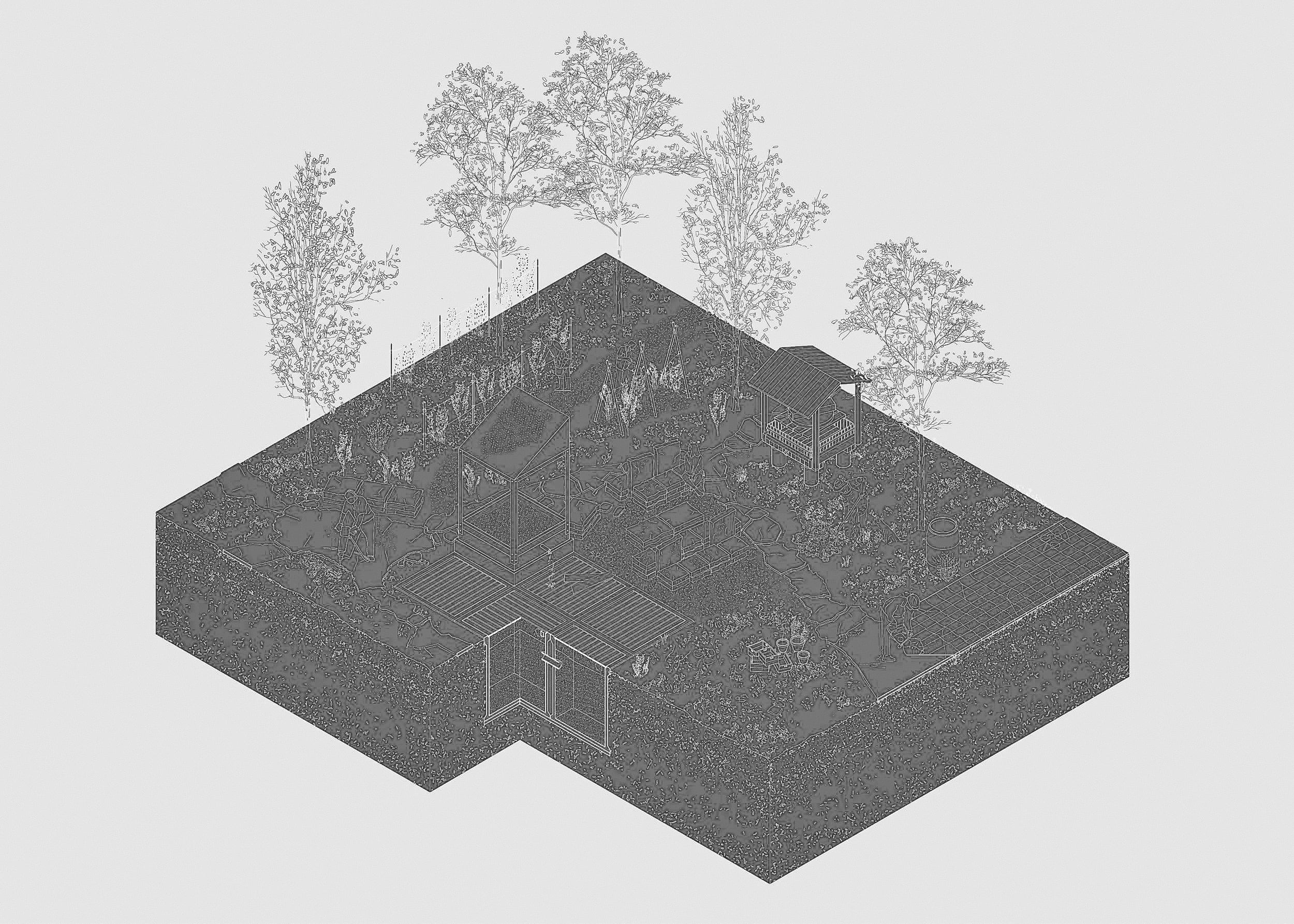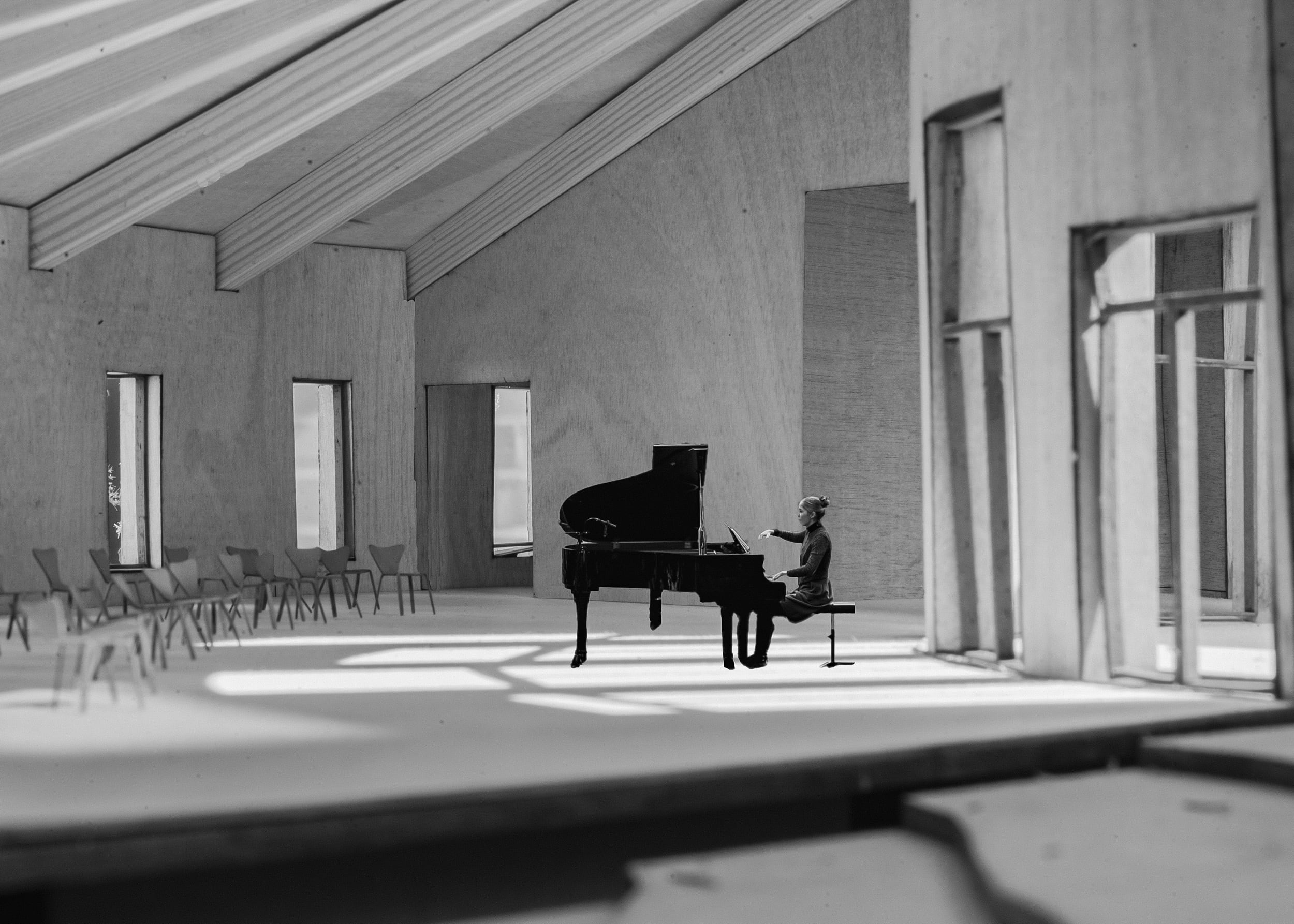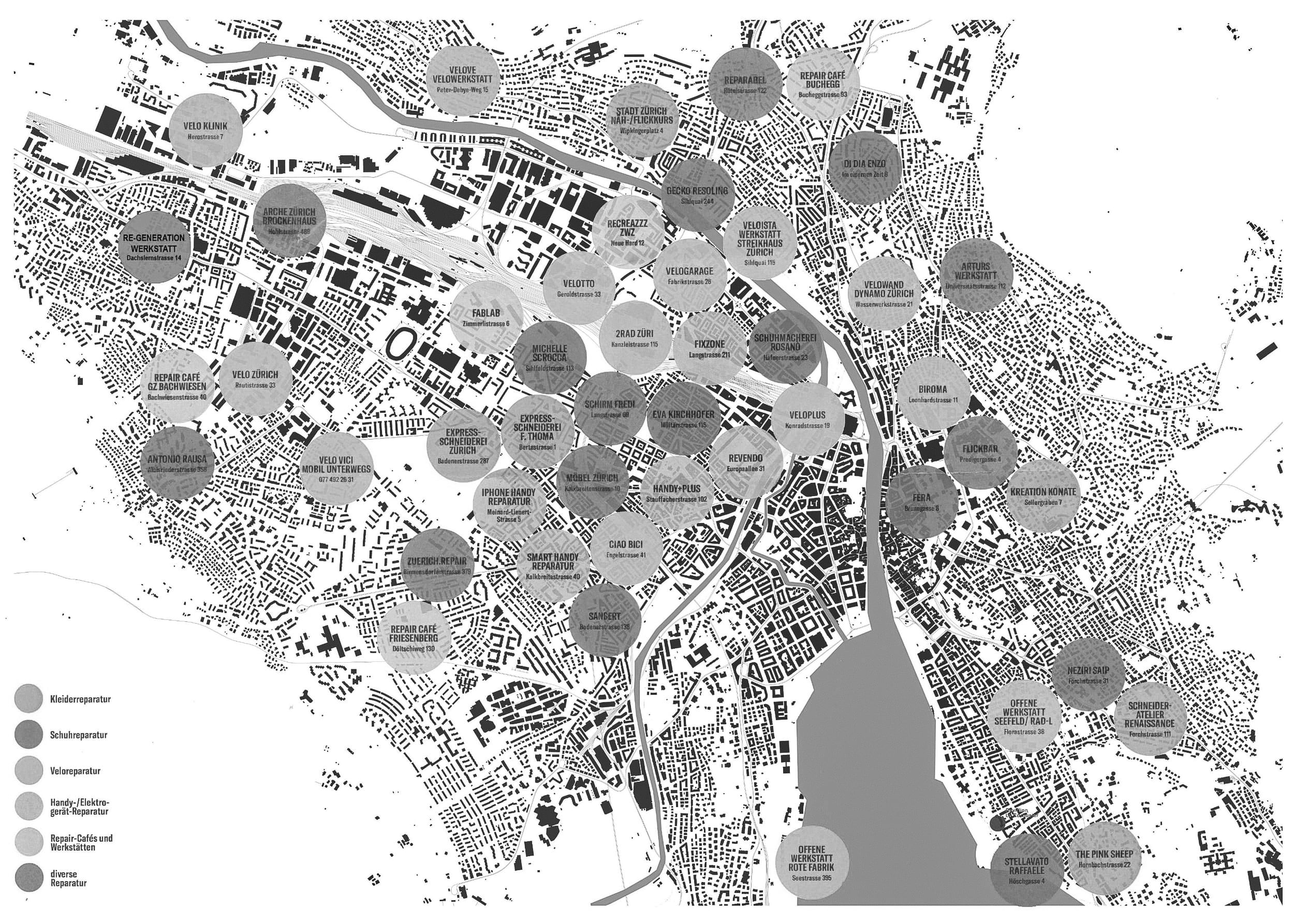DESIGN STUDIO
SPRING SEMESTER 2023
The End of Youth
Julien Lafontaine Carboni, Angelika Hinterbrandner, Mariam Issoufou, Soukaina Laabida, Tobia Rapelli, Filippo Santoni
Semester Introduction Video
The youthful optimism ushered in through the industrial revolution, facilitating the advent of a modernist architecture that explored an incredible freedom of form and space, culminating in a contemporary architecture of sometimes exhilarating form. Over time, buildings have detached themselves from any concerns related to climate, geography, nature, and human conditions, to become more about technical possibilities focused on constant invention sometimes to the detriment of the buildings’ use or usefulness.
Architecture has often been an agent of that isolation and degradation through the typologies we design.
They are easily complicit in reinforcing class segregations, cultural segregations, or even generational segregations. In a time of environmental collapse, economic fragility and rapidly aging societies, we are becoming more and more vulnerable, yet we live painfully separate and segregated lives from each other. We no longer have the built infrastructure to live together, even though we clearly need one another, as was made painfully evident by the COVID global pandemic. In short, the dismissal of the realities inherent to the context of buildings might be incompatible with a healthier, more responsible and more connected future.
This studio will ponder the place of architecture in this time of crisis and fragilities. The focus will be on a neighborhood of Zürich where students will immerse themselves in the local environment, social and economic context of the project through in-depth research. The course will unfold as a process that will help and encourage participants to imagine typologies that are multi-layered solutions in response to a predominant social vulnerability.
STUDENT PROJECTS
Zurich Altstetten is a dynamic social mix. The neighborhood is a residential area, home to families with children, students, young adults, adults, as well as retired, older population, etc. Altstetten is also a place for working, for education, and for leisure with many sports facilities and green spaces. Our project anchor in Dachslernstrasse embodies this richness, as it is surrounded by many uses, users and programs: schools, retirement homes, religious spaces, a museum, a neighborhood community center, and a space for sport. However, the existing urban and architectural qualities would benefit from an intelligent intervention that contributes positively to a vibrant public life for the neighborhood.
The initial research conducted about Altstetten is deepened at the scale of the plot, by analyzing the complexity and multi-layered realities of the site: Histories, Architectural Heritage, Narratives, Human Landscapes, Affective Heritage, Climate, Sustainability, Ambiances, and Economies. With a strong focus on continuity and interconnection between research and design process, students build a site-specific base to think later in the semester about architectural programs and typologies enabling multigenerational interactions. The aim is to learn to conceive architecture with a holistic approach, taking in account the complex realities of site and topics, at the same time as providing answers on sustainability and heritage in all its aspects.
Werkhof
Rolf Imseng
Growing Together
Airas Sánchez Keller, Julian Rickenbacher
Quartierstube
Madleina Fischer, Mike Zweidler
Building Bridges
Anouk Fischer, Laurianne Chassot
A New Old Center
Max Nagler, Matthias Bietenhard
A Seat at the Table
Helia Jamshidi, Laia Meier
NOOR
Deniz Örün, Elina Leuba
Community Classroom
Dario Toppan, Oluwasegun Ogunsola
Altstetten's Public Living Room
Sahra Khan, Inès Rausis
Growing Diversity
Olivia Beeler, Charlotte Thallinger
Support Next Door
Adrienne Enz, Monika Grabski
A Place for a Caring Community
Samuel Santschi, Philipp Schmid
Melodies of Altstetten
Andela Pejici, Yann Schwaller
Re-Generation Werkstatt
Delphine Potterat, Loraine Limacher
PROF. MARIAM ISSOUFOU
ARCHITECTURE HERITAGE & SUSTAINABILITY
ETH Zürich
Department of Architecture
Stefano–Franscini–Platz 5
CH–8093 Zürich
HIL E 47.1
INSTAGRAM
@studio.atavism
